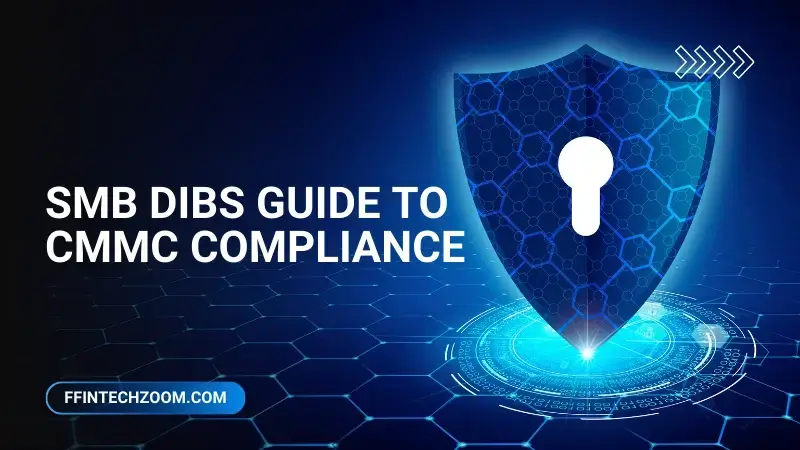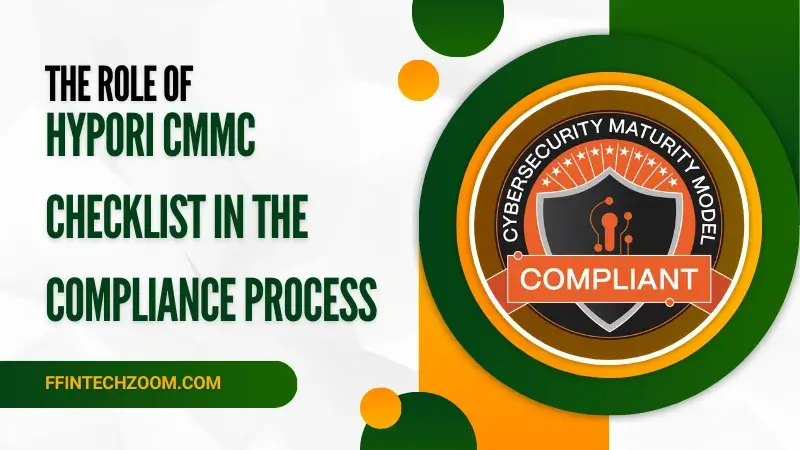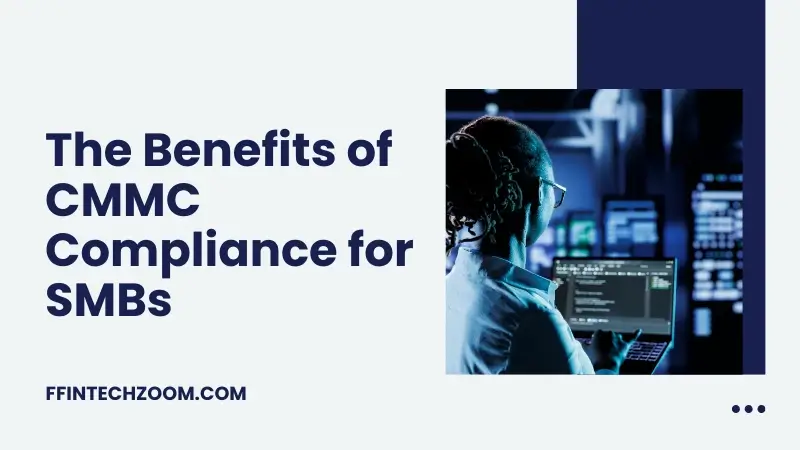SMB DIBS Guide to CMMC Compliance for Enhancing Cybersecurity and Business Growth
In today’s interconnected world, cybersecurity is more crucial than ever. With the increasing sophistication of cyber threats, businesses of all sizes must ensure their systems and processes are protected against potential breaches. For small and medium-sized businesses (SMBs) that do business with the Department of Defense (DoD), the Cybersecurity Maturity Model Certification (CMMC) is now a requirement. This article provides an in-depth guide for SMBs seeking to navigate the CMMC compliance process, and how they can use it to enhance both cybersecurity and business growth.

Understanding the CMMC Framework
The CMMC is a unified cybersecurity standard designed to safeguard sensitive government data. It was developed by the Department of Defense (DoD) to improve the overall security posture of the Defense Industrial Base (DIB). The framework consists of several levels of certification, each with specific cybersecurity practices and processes.
The CMMC is structured into five maturity levels, with Level 1 being the most basic and Level 5 the most advanced. The goal of the CMMC is to ensure that companies working with the DoD implement robust cybersecurity measures to protect Controlled Unclassified Information (CUI) and other sensitive data from unauthorized access.
At its core, the CMMC framework is designed to enhance an organization’s security posture by requiring companies to implement a set of cybersecurity practices and processes. These practices span a variety of security domains, including access control, incident response, and system and communications protection, among others.
For SMBs in the DIB, compliance with the CMMC is a critical step toward protecting their digital infrastructure and mitigating the risk of cyberattacks. The CMMC process can seem daunting at first, but with proper planning and execution, SMBs can not only meet compliance requirements but also use the framework as a springboard for business growth.
The Importance of CMMC Compliance for SMBs
For SMBs in the DIB, compliance with CMMC is no longer optional. The DoD has made it clear that all contractors and subcontractors working with them must meet specific cybersecurity standards. As part of the defense industry, SMBs are responsible for handling sensitive government data. Without the proper safeguards in place, these companies become prime targets for cybercriminals.
The CMMC certification process can seem overwhelming, especially for smaller organizations that may lack the internal resources to implement advanced cybersecurity measures. However, by meeting the CMMC requirements, SMBs not only enhance their cybersecurity posture but also unlock new business opportunities.
Achieving compliance with CMMC can significantly improve a company’s reputation, particularly among potential clients in the defense sector. Government agencies and defense contractors are more likely to engage with businesses that demonstrate a commitment to securing sensitive data. Therefore, CMMC compliance can serve as a powerful differentiator in a highly competitive market.
The Role of Hypori CMMC Checklist in the Compliance Process
Navigating the CMMC compliance process requires a structured approach. One of the most valuable resources SMBs can utilize is a comprehensive checklist. This checklist helps ensure that companies meet all the requirements for each level of CMMC certification.
The Hypori CMMC checklist is an essential tool for SMBs seeking to meet the CMMC requirements. It provides a detailed, step-by-step guide to ensure that all aspects of cybersecurity are properly addressed. This checklist covers everything from network security to access control, risk management, and more. It helps businesses assess their current cybersecurity practices and identify areas that need improvement.

By following the Hypori CMMC checklist, SMBs can break down the complex CMMC requirements into manageable steps. This makes the process less intimidating and ensures that nothing is overlooked. The checklist also allows businesses to track their progress as they move through the stages of compliance, making it easier to stay on track and meet deadlines.
For SMBs looking to enhance their cybersecurity and grow their business, using the Hypori CMMC checklist is a smart and efficient way to ensure compliance while also improving security practices.
Key Steps to Achieving CMMC Compliance
Achieving CMMC compliance requires more than simply meeting a set of requirements. It involves a holistic approach to cybersecurity, with continuous monitoring and improvements. The following steps will guide SMBs through the CMMC compliance process, ensuring that they meet the necessary standards and leverage compliance for business growth.
1. Assess Current Cybersecurity Posture
Before beginning the CMMC certification process, businesses must assess their current cybersecurity practices. This includes evaluating existing security measures, identifying vulnerabilities, and determining what improvements are needed. Companies should conduct a thorough risk assessment to understand where they are most vulnerable to cyber threats.
The Hypori CMMC checklist plays a crucial role at this stage by helping SMBs identify which practices and controls are already in place and which ones need to be implemented. By understanding the current state of their cybersecurity infrastructure, businesses can create a roadmap for achieving compliance.
2. Implement Necessary Security Controls
Based on the results of the risk assessment, SMBs must implement the required security controls outlined in the CMMC framework. These controls span multiple domains, including access control, incident response, configuration management, and more.
For example, businesses must ensure that their networks are properly segmented, sensitive data is encrypted, and access to systems is tightly controlled. Additionally, companies should have an incident response plan in place to quickly detect and respond to cyberattacks.
3. Develop and Document Policies and Procedures
In addition to implementing technical controls, SMBs must develop and document policies and procedures to ensure that cybersecurity best practices are consistently followed. These documents serve as a roadmap for employees and contractors, ensuring that everyone in the organization is on the same page when it comes to cybersecurity.
Policies should address key areas such as access control, data protection, and incident response. They should also outline roles and responsibilities, as well as procedures for reporting security incidents. Proper documentation is essential for demonstrating compliance during the certification process.
4. Conduct Ongoing Monitoring and Auditing
Achieving CMMC compliance is not a one-time event; it requires ongoing effort. SMBs must continuously monitor their systems to identify potential security weaknesses and respond to new threats. Regular audits should be conducted to ensure that security controls are functioning as intended.
By maintaining a proactive approach to cybersecurity, businesses can quickly adapt to changing threats and continue to meet the CMMC requirements. Regular monitoring and auditing are critical to maintaining compliance and safeguarding sensitive data.
5. Obtain CMMC Certification
Once all necessary security controls are in place, businesses can begin the formal process of obtaining CMMC certification. This process involves working with a third-party assessor who will evaluate the company’s cybersecurity practices to ensure that they meet the standards for the desired level of certification.
The third-party assessor will conduct a thorough review of the business’s security controls, policies, and procedures. If the business passes the assessment, they will be awarded the appropriate level of CMMC certification. This certification serves as proof that the company meets the necessary cybersecurity requirements to handle sensitive government data.
The Benefits of CMMC Compliance for SMBs
Achieving CMMC compliance offers numerous benefits for SMBs. While the certification process can be time-consuming and complex, the rewards far outweigh the investment. Here are some of the key advantages that come with CMMC compliance:

1. Improved Cybersecurity
The most immediate benefit of CMMC compliance is improved cybersecurity. By implementing the required controls and practices, SMBs can significantly reduce their risk of cyberattacks and data breaches. This protects both the company’s sensitive data and that of their clients, fostering trust and security.
2. Increased Business Opportunities
CMMC compliance opens the door to new business opportunities. Companies that are certified are eligible to work with the DoD and other defense contractors, which can lead to lucrative contracts and partnerships. In an increasingly competitive market, having CMMC certification can give SMBs a distinct competitive advantage.
3. Enhanced Reputation and Trust
CMMC compliance demonstrates a commitment to cybersecurity and data protection. This helps build trust with clients, partners, and stakeholders. For SMBs, reputation is everything, and achieving certification sends a strong message that the company takes cybersecurity seriously.
4. Risk Mitigation
By following the CMMC framework, SMBs can identify and address cybersecurity risks before they become major issues. This proactive approach to security reduces the likelihood of costly data breaches, downtime, and reputational damage.
5. Long-Term Growth and Sustainability
Achieving CMMC compliance sets the stage for long-term business growth. As the demand for secure and compliant contractors in the defense sector continues to grow, SMBs that are CMMC-certified will be well-positioned to take advantage of new opportunities. Moreover, the security improvements made during the compliance process can help businesses scale securely and efficiently.
Conclusion
For SMBs in the Defense Industrial Base, achieving CMMC compliance is a vital step toward securing sensitive government data and enhancing cybersecurity. While the compliance process may seem daunting, it presents an opportunity to improve overall security and open the door to new business opportunities.
Using resources like the Hypori CMMC checklist can simplify the process and ensure that businesses stay on track toward achieving certification. With the right approach, SMBs can not only meet the necessary standards but also leverage CMMC compliance to fuel growth and strengthen their position in the marketplace.
Cybersecurity is an ongoing effort, but with the CMMC framework, SMBs can build a strong foundation for success in the defense sector, protect their assets, and ensure long-term business sustainability. You can visit Fintechzoom.com for more trending posts.



